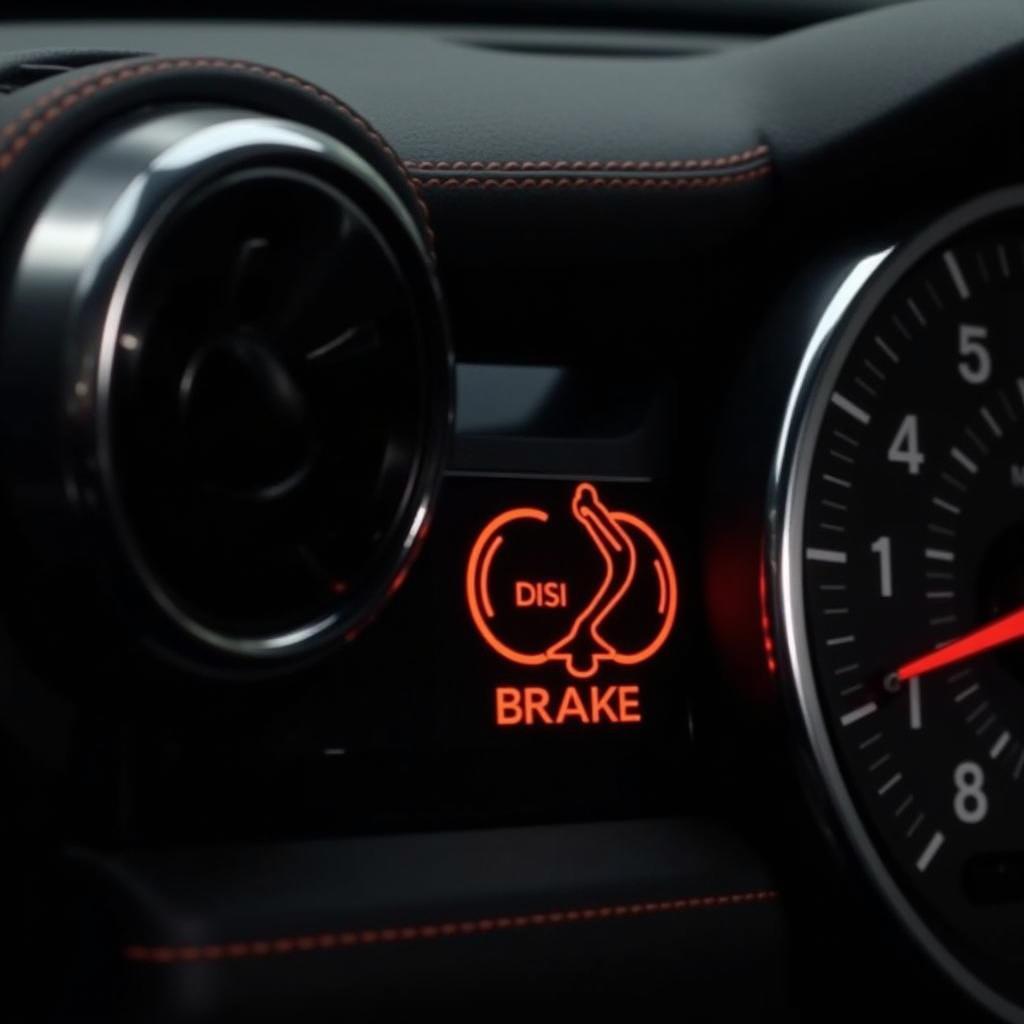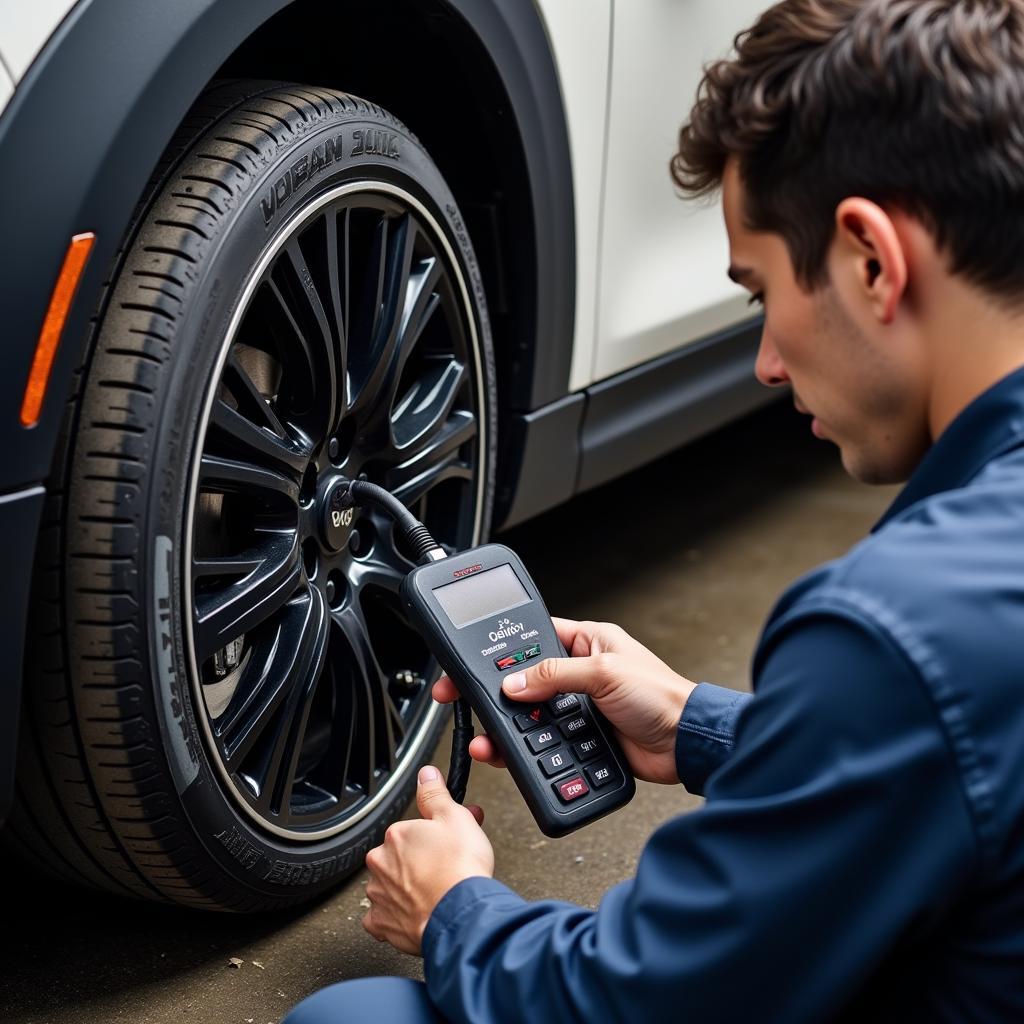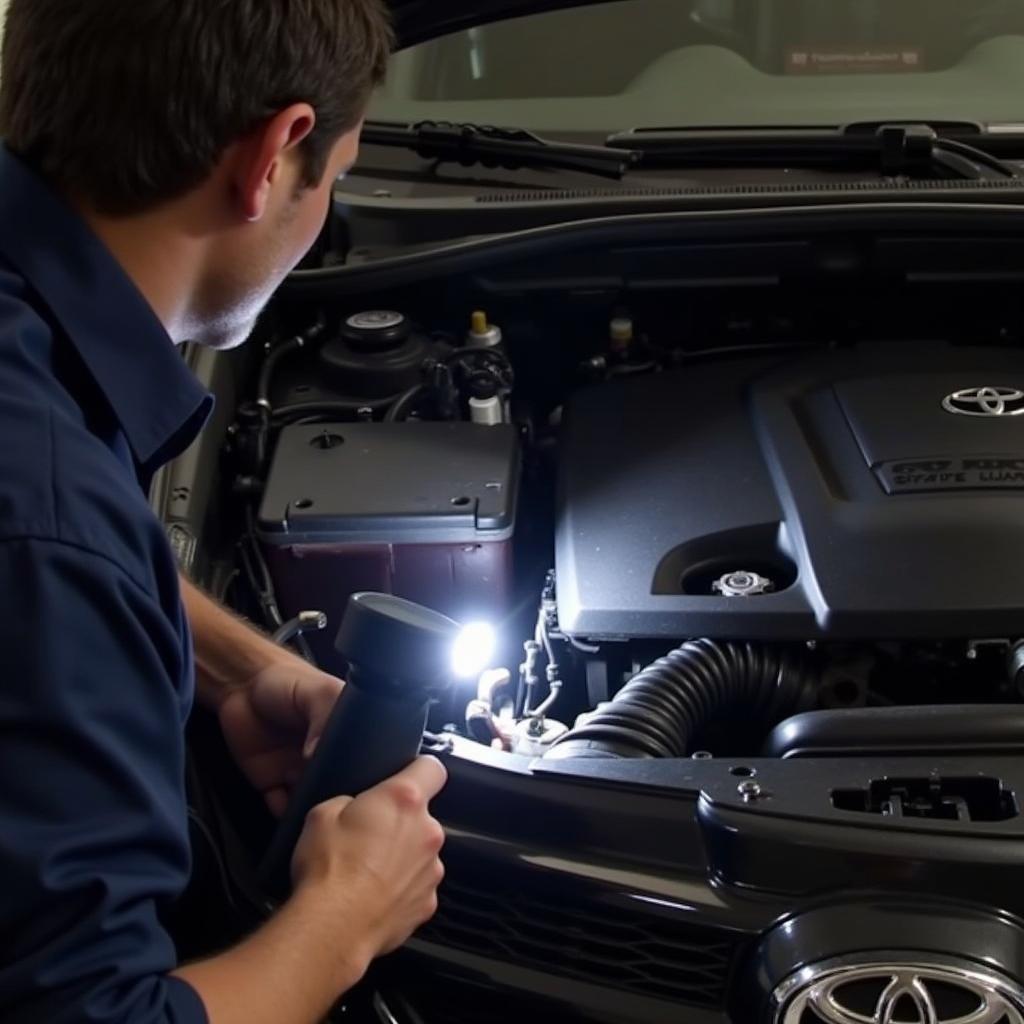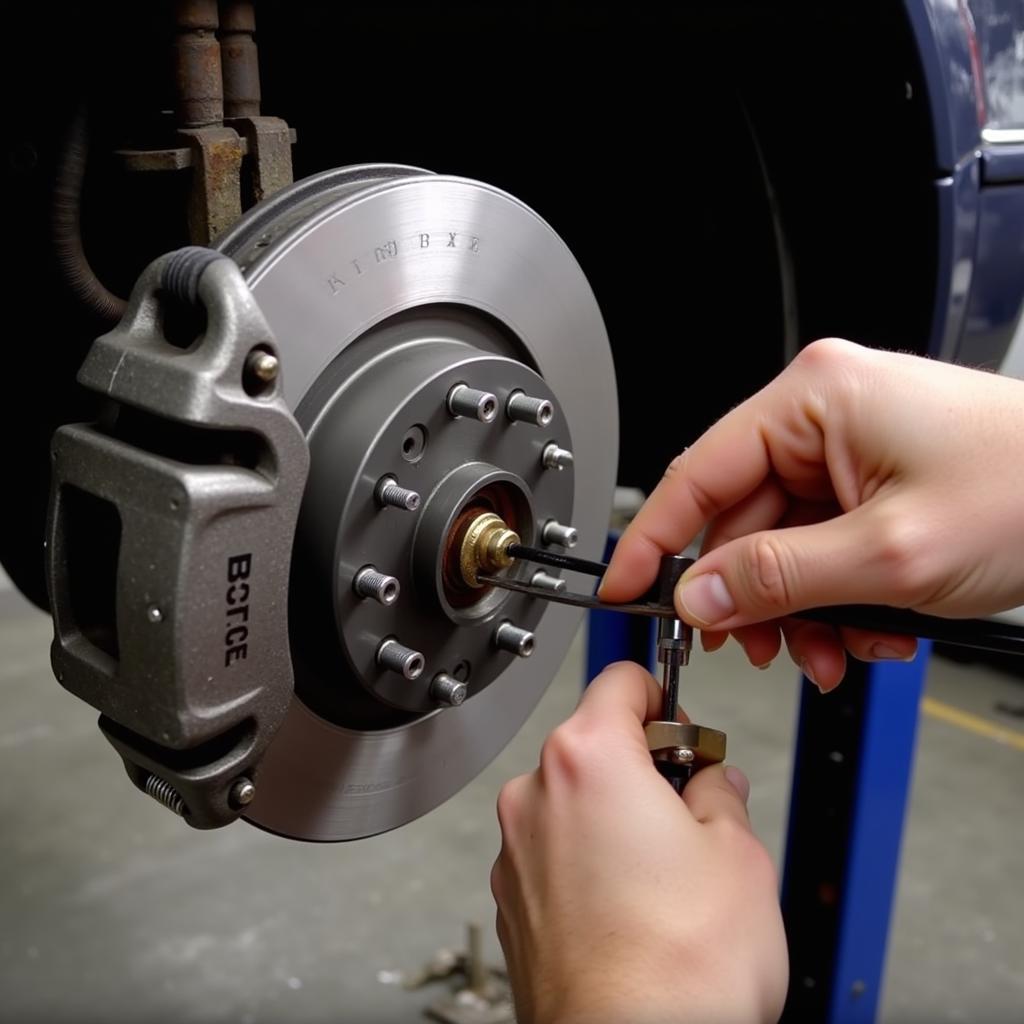Is your Mini Cooper’s brake warning light stubbornly refusing to switch off? This can be a worrying situation for any driver. A persistent brake warning light usually indicates an issue with your vehicle’s braking system that requires attention. Don’t panic – this article will guide you through the common causes and provide potential solutions, empowering you to address this issue effectively.
Understanding Your Mini Cooper’s Brake Warning Light
Before we delve into the causes, it’s important to understand what triggers your Mini Cooper’s brake warning light. This light serves as a crucial safety feature, alerting you to potential problems within the braking system. It can be triggered by a variety of factors, ranging from low brake fluid levels to more serious issues like a malfunctioning ABS system.
 Mini Cooper Dashboard Displaying Brake Warning Light
Mini Cooper Dashboard Displaying Brake Warning Light
Common Causes of a Persistent Brake Warning Light
Here are some of the most common reasons why your Mini Cooper brake warning light might stay on:
1. Low Brake Fluid: Brake fluid is the lifeblood of your car’s braking system. Over time, brake fluid levels can decrease due to leaks or as the brake pads wear down. If the brake fluid level drops below a certain point, it can trigger the warning light.
2. Worn Brake Pads: Your Mini Cooper’s brake pads are designed to wear down gradually with use. When they become too thin, a sensor within the brake pad will trigger the warning light, signaling that it’s time for a replacement.
3. Faulty Brake Light Switch: The brake light switch is responsible for activating your brake lights when you press the pedal. If this switch malfunctions, it can not only prevent your brake lights from functioning correctly but also cause the brake warning light to illuminate.
4. ABS Issues: Modern Mini Coopers are equipped with Anti-lock Braking Systems (ABS). If there’s a problem with the ABS system, such as a faulty sensor or control module, it can trigger the brake warning light.
5. Issues with the Electronic Parking Brake: Some Mini Cooper models come with an electronic parking brake. If there’s a malfunction within this system, it can also trigger the brake warning light.
Troubleshooting and Solutions
Now that we’ve covered the common causes, let’s explore some troubleshooting steps and potential solutions:
1. Check Brake Fluid Level: This is the first and easiest step. Locate the brake fluid reservoir under the hood of your Mini Cooper and check the fluid level. If it’s low, top it off with the recommended brake fluid type.
2. Inspect Brake Pads: If your brake fluid level is fine, the next step is to check the thickness of your brake pads. You can usually inspect them visually through the spaces between the wheel spokes. If they appear significantly worn, it’s best to have them replaced by a qualified mechanic.
3. Test Brake Light Switch: You can test the brake light switch by having someone observe the brake lights while you press and release the brake pedal. If the lights don’t illuminate or remain on constantly, the switch likely needs replacement.
4. Seek Professional Diagnostics: For issues related to the ABS system or electronic parking brake, it’s highly recommended to seek professional diagnostics. These systems are complex and require specialized equipment to diagnose and repair properly.
 Mechanic Performing Diagnostic Scan on Mini Cooper
Mechanic Performing Diagnostic Scan on Mini Cooper
When to Contact a Mechanic
While some causes of a persistent brake warning light can be addressed with basic troubleshooting, it’s crucial to remember that your Mini Cooper’s braking system is critical for your safety. If you’re unsure about any aspect of inspecting or repairing your brakes, or if the warning light persists after trying the basic checks, it’s best to err on the side of caution and consult a qualified mechanic.
Preventive Maintenance Tips
Regular maintenance can go a long way in preventing brake issues and ensuring the longevity of your Mini Cooper’s braking system. Here are some preventive measures to keep in mind:
- Regular Brake Fluid Flushes: Brake fluid absorbs moisture over time, which can reduce its effectiveness. Aim to have your brake fluid flushed and replaced every 2-3 years or as recommended in your Mini Cooper’s owner’s manual.
- Timely Brake Pad Replacement: Don’t wait for your brake pads to wear down completely before replacing them. It’s best to replace them when they reach the minimum thickness recommended by the manufacturer.
- Inspect Brake Lines and Hoses: Regularly inspect your brake lines and hoses for signs of wear, cracks, or leaks. Replace any damaged components immediately.
Conclusion
A persistent brake warning light on your Mini Cooper shouldn’t be ignored. By understanding the potential causes and following the troubleshooting steps outlined in this article, you can take the necessary steps to address the issue and ensure your safety on the road. Remember, when in doubt, always consult a qualified mechanic to diagnose and repair any brake system problems. Don’t compromise on safety – take care of your Mini Cooper’s brakes, and they’ll take care of you.
Frequently Asked Questions
1. Can I drive my Mini Cooper with the brake warning light on?
It’s not recommended to drive your Mini Cooper with the brake warning light on. This light indicates a potential issue with your braking system, and continuing to drive could be unsafe.
2. How much does it cost to fix a brake warning light on a Mini Cooper?
The cost of fixing a brake warning light can vary greatly depending on the underlying cause. It could be as simple as topping off brake fluid or as involved as replacing major brake components.
3. How often should I check my Mini Cooper’s brake fluid?
It’s a good practice to check your Mini Cooper’s brake fluid level at least once a month. Additionally, refer to your owner’s manual for recommended brake fluid flush intervals.
4. Can I reset the brake warning light myself?
While it’s possible to reset the brake warning light in some cases, it’s not recommended unless you’ve addressed the underlying issue.
5. What does it mean if my Mini Cooper brake warning light is flashing?
A flashing brake warning light usually indicates a more serious issue, often related to the ABS system. It’s crucial to have this addressed by a qualified mechanic immediately.


